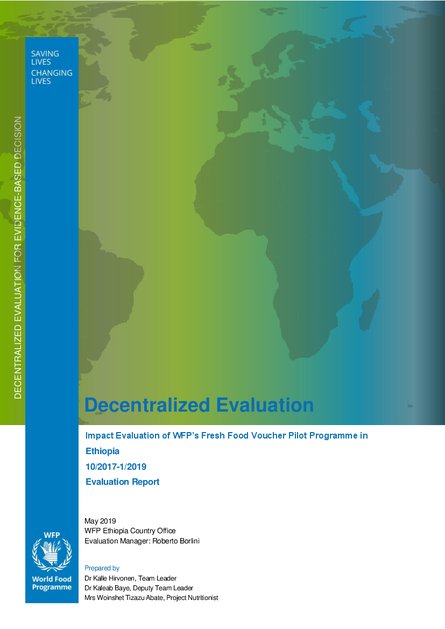
The decentralized evaluation has been commissioned by the WFP Ethiopia Country Office and covers the Endline study of the Impact Evaluation of WFP’s Fresh Food Voucher Pilot Programme in the Amhara region of Ethiopia. The FFV Pilot Programme supports households with pregnant and lactating women/children under 2 years of age to improve their access to fresh food through vouchers in the Amhara region.
The main objectives of the evaluation were to assess and report on the performance and results of the FFV programme to help WFP present high-quality and credible evidence of actual impact to its donors (accountability). In addition, the purpose of the evaluation was to determine the reasons why certain results occurred (or not) to draw lessons, derive good practices and pointers for learning (learning).
The evaluation was designed to assess the impact of the WFP's Fresh Food Voucher (FFV) program against the following evaluation criteria: effectiveness and impact. The evaluation team conducted a randomized controlled trial (RCT), combining quantitative and qualitative data collection. The evaluation covered the period from October 2017 to January 2019 with survey phases repeated at one-year interval in December 2017 and December 2018. Key recommendations from the evaluation included:
The WFP needs to make sure that all eligible households receive transfers on a monthly basis and that the transferred amounts are both predictable and consistent across months.
The WFP needs to hire dedicated program coordinators, if possible, at the kebele level to provide on-the-spot support to beneficiaries and eligible households that are not receiving vouchers. A complaint feedback mechanism that complementing the hotline number should be set-up.
The WFP should reconsider excluding onions and potatoes from the voucher scheme to maximize the dietary quality impacts.
